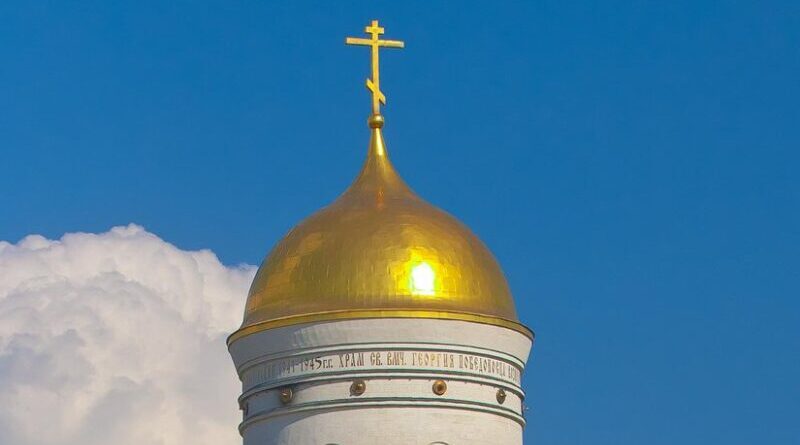Albania: Orthodox Church Condemns ‘Sacrilegious’ Electioneering In Churches
By Gjergj Erebara
Ahead of hotly disputed local elections in Albania, the Orthodox Church in the country has called on politicians to not use its premises for political activities, following at least two occasions in which mayoral candidates were seen speaking to voters within churches.
“The use of sacred churches for political activity insults religious and institutional feelings,” a statement issued on Monday reads.
On Sunday, the Metropolitan of Apollonia and Fieri said in a separate statement that the use of churches for such purposes was sacrilegious.
The row started after the Mayor of Tepelena, Termet Peci, who is running for a third mandate for the ruling Socialist Party in local elections boycotted by the main opposition parties, addressed supporters from the altar of a church in the village of Lekel.
Majlinda Bufi, the Mayor of Roskovec, meanwhile gave an interview for ERTV, an online television channel close to Socialist Prime Minister Edi Rama, inside an old church.
The Church says that in both cases it did not give permission for these events. “Such usage is a sacrilege of holy places and an insult to believers,” it said.
Both statements claimed that a landmark agreement between the Church and the Albanian state signed in 2009 been breached.
Following the angry reaction from the Church, Mayor Bufi of Roskovec insisted that as the church in question was a historic monument, it belonged to the Ministry of Culture, not to the Church.
Relations between the Socialist-led government and the Orthodox Church in Albania have been rocky since 2015 when the authorities demolished a church in the village of Dhermi, saying it was an “illegal building”.
The demolition of the church angered believers and the authorities in neighbouring Greece. A significant number of Orthodox believers in mainly Muslim Albania are ethnic Greeks and the authorities in Albania have long seen the Orthodox Church as Greek-dominated and over-influenced by Greek interests.
Church and state have been separate in Albania state since it gained independence from the Ottoman Empire in 1912. Religious organizations usually refrain from commenting on politics and do not take sides in elections.
The precise number of Orthodox believers in Albania is disputed. In the 2011 census, some 56.7 per cent of the population declared they were Muslim, 10 per cent said they were Catholic and 6.75 per cent said they were Orthodox, but the Church insists the real number of Orthodox believers is much higher.

